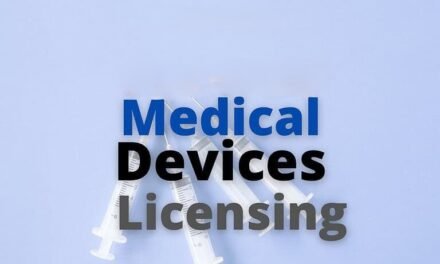
Are there any specific quality standards, such as ISO 13485, mandatory for medical device manufacturers?

Yes, specific quality standards like ISO 13485 are mandatory for medical device manufacturers in India, particularly under the framework of the Medical Devices Rules, 2017. Compliance with these standards ensures that manufacturers maintain robust quality management systems (QMS) and produce safe, effective, and high-quality medical devices. Here’s a breakdown of the requirements:
ISO 13485: Quality Management System for Medical Devices
- Overview of ISO 13485
- ISO 13485 is an internationally recognized standard for QMS specific to the medical device industry.
- It provides a framework for managing processes like design, manufacturing, distribution, installation, and servicing of medical devices to meet regulatory requirements.
- Key Features of ISO 13485
- Focuses on risk management and product safety throughout the device lifecycle.
- Emphasizes regulatory compliance, documentation, and continuous improvement.
- Includes provisions for traceability, post-market surveillance, and adverse event reporting.
- Mandatory Compliance
- Manufacturers of Class A, B, C, and D devices must implement and maintain a QMS aligned with ISO 13485 to obtain and renew manufacturing licenses.
- Regulatory authorities (e.g., CDSCO and State Licensing Authorities) may require ISO 13485 certification as evidence of compliance.
Additional Quality Standards
- Good Manufacturing Practices (GMP)
- Adherence to GMP, as outlined in the Medical Devices Rules, 2017, is mandatory.
- Covers facility design, manufacturing processes, personnel hygiene, equipment calibration, and quality assurance.
- IEC Standards
- For specific device categories, compliance with International Electrotechnical Commission (IEC) standards (e.g., IEC 60601 for medical electrical equipment) is required.
- BIS Standards
- Devices may also need to meet applicable standards set by the Bureau of Indian Standards (BIS) for safety, performance, and labeling.
Certification Requirements
- ISO 13485 Certification:
- Conducted by accredited third-party certification bodies recognized by the Central Drugs Standard Control Organization (CDSCO).
- Certification is valid for a specific period and subject to regular audits.
- CE Marking for Exports:
- Manufacturers targeting international markets often seek ISO 13485 certification as a prerequisite for CE marking (European conformity) and FDA approval in the United States.
Role of ISO 13485 in Regulatory Approvals
- Manufacturing License:
- Manufacturers must demonstrate compliance with ISO 13485 during the licensing process.
- Non-compliance can lead to delays or rejection of license applications.
- Post-Market Surveillance:
- A robust QMS ensures effective monitoring of device performance and rapid response to adverse events, as required by CDSCO.
Benefits of Compliance with ISO 13485
- Regulatory Approval: Simplifies obtaining approvals for both domestic and export markets.
- Market Access: Builds trust with healthcare providers and patients.
- Continuous Improvement: Encourages manufacturers to improve processes and reduce risks.
- Global Recognition: Facilitates entry into international markets.
Compliance with ISO 13485 is a critical requirement for medical device manufacturers in India. It is not only a regulatory mandate but also a key factor in building credibility, ensuring product safety, and gaining access to domestic and global markets. Manufacturers should also stay updated with other applicable standards (e.g., IEC, BIS) and regulatory changes to maintain compliance.




























